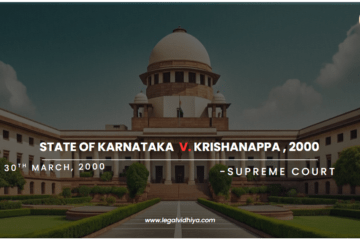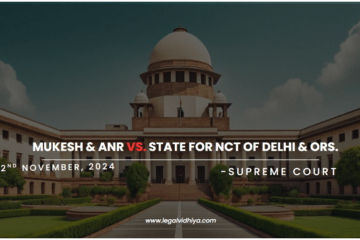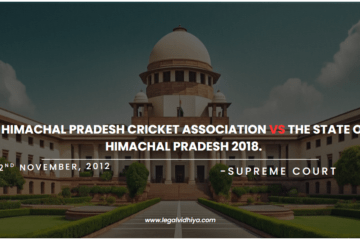
| Citation | 1913 40 ALJ 489 |
| Date of Judgement | 17 April, 1913 |
| Court | Allahabad High Court |
| Appellant | Lalman Shukla |
| Respondent | Gauri Dutt |
| Judge(s) Sitting | Justice Banerji |
FACTS
After the lower court dismissed the plaintiff’s claims, the case of Lalman Shukla v. Gauri Dutt was heard before the Allahabad High Court. In this instance, the defendant’s nephew escaped his home in secret and was never found. The defendant sent his bodyguards to different sites in search of his nephew. The servants all went to Haridwar in search of the defendant’s nephew. The defendant paid for their transportation and spent the money on other expenses. The Plaintiff was the firm’s munib who was sent to Haridwar to find the defendant’s nephew. Meanwhile, the defendant disseminated handbills stating that anyone who finds and returns his nephew will be compensated with Rs. 501. The plaintiff found the defendant’s nephew in Haridwar, notified him, and returned him to Cawnpore. The plaintiff was granted two sovereigns and twenty rupees upon his return. The plaintiff returned to his usual daily activities, satisfied with his compensation. After six months, the defendant fired the plaintiff due to a disagreement. The plaintiff then requested Rs. 499 as a reward for identifying the defendant’s nephew. The petitioner alleged that he was promised Rs. 501 in addition to expenses and other gifts before leaving for Haridwar. The plaintiff’s main complaint against the defendant was that he did not compensate him after completing the required task.
ISSUES
- Was the lower court’s decision valid?
- What was the kind of offer that the defendant claimed to make?
- Was a valid acceptance made by the defendant?
- Whether a valid contract was formed?
- Whether the plaintiff is entitled for the reward?
ARGUMENTS
PLAINTIFF
The plaintiff asserted that by completing his part, which was required in order to get the judgment, he implicitly accepted the defendant’s general offer. The terms of the offer do not need to be revealed to the plaintiff in order for the transaction to be completed. The plaintiff was also said to have received the handbill along with the offer. The complainant based their arguments on two past decisions one was Gibbons v. Proctor and Wiliams v. Crawardine, by which he alleged that the act was related to the award.
DEFENDANT
The acceptance of the offer leads to the formation of an agreement. There could be no acceptance if the petitioner was unaware of the offer. Because the handbill was distributed after the plaintiff went in pursuit of the nephew, the petitioner was unaware of the defendant’s prize. The defendant highlighted the case of Fitch v. Snedekar , in which the entire case rested on identifying the murder suspect or culprit. Fitch came out to help identify the offender. The Governor promised a reward to anyone who could provide information on the matter. Fitch was initially ignorant of the prize until he provided information to the police. He initiated a lawsuit in order to get the prize. The court, on the other hand, said that the offer cannot be accepted without its knowledge.
JUDGEMENT
The Allahabad High Court correctly decided in the case that the plaintiff’s apparent full acceptance of the offer was incomplete since the plaintiff lacked information about the handbills. Accepting an offer necessitates knowledge of the offer. After visiting Haridwar in search of the defendant’s nephew, the plaintiff distributed the handbills. The plaintiff went looking for the defendant’s nephew not for the reward promised in the handbill, but because it was his responsibility. He already had an ongoing employment responsibility. The offer and agreement are likewise unenforceable because the plaintiff did not engage in any new behavior in order to earn the judgment. The plaintiff’s behavior was part of her job and not part of the incentive scheme. The plaintiff provided no consideration in exchange for the defendant’s pay. There was no fresh benefit for the defendant. The plaintiff’s case undoubtedly supported their claim, but their judgments were challenged.
REFERENCES
https://blog.ipleaders.in/lalman-shukla-v-gauri-dutt-case-analysis/
Written by Monal an intern under legal vidhiya.




0 Comments